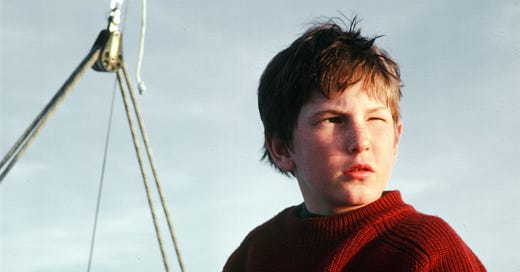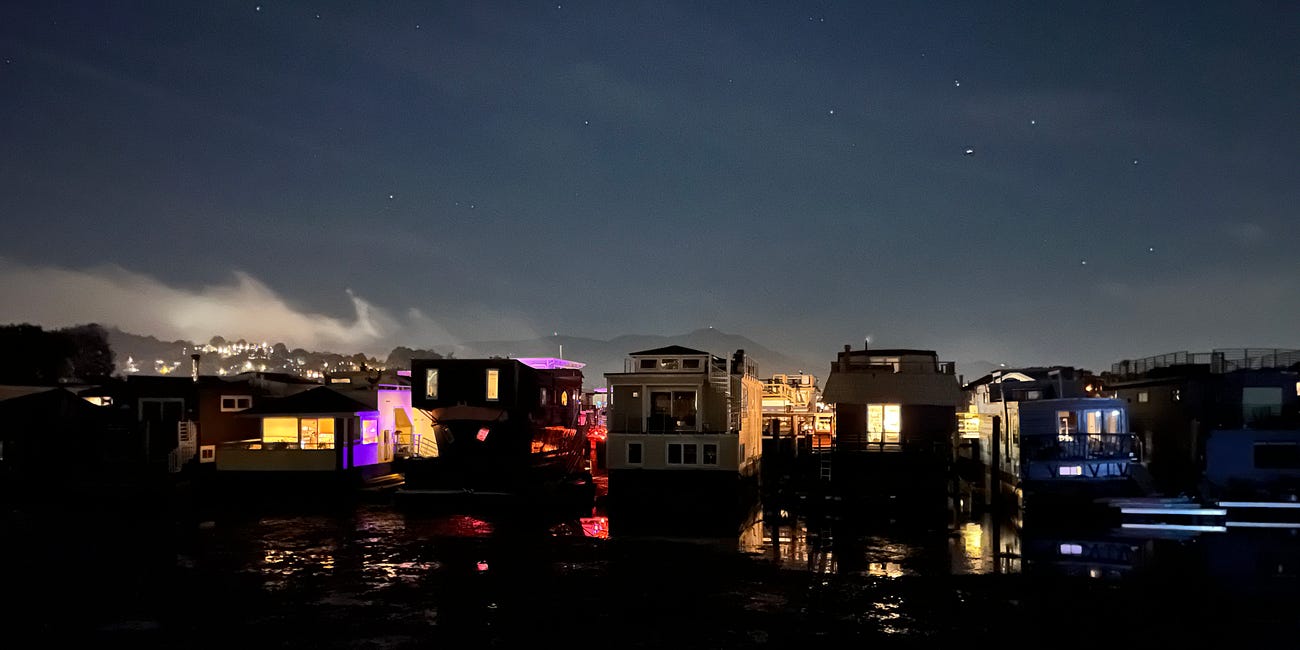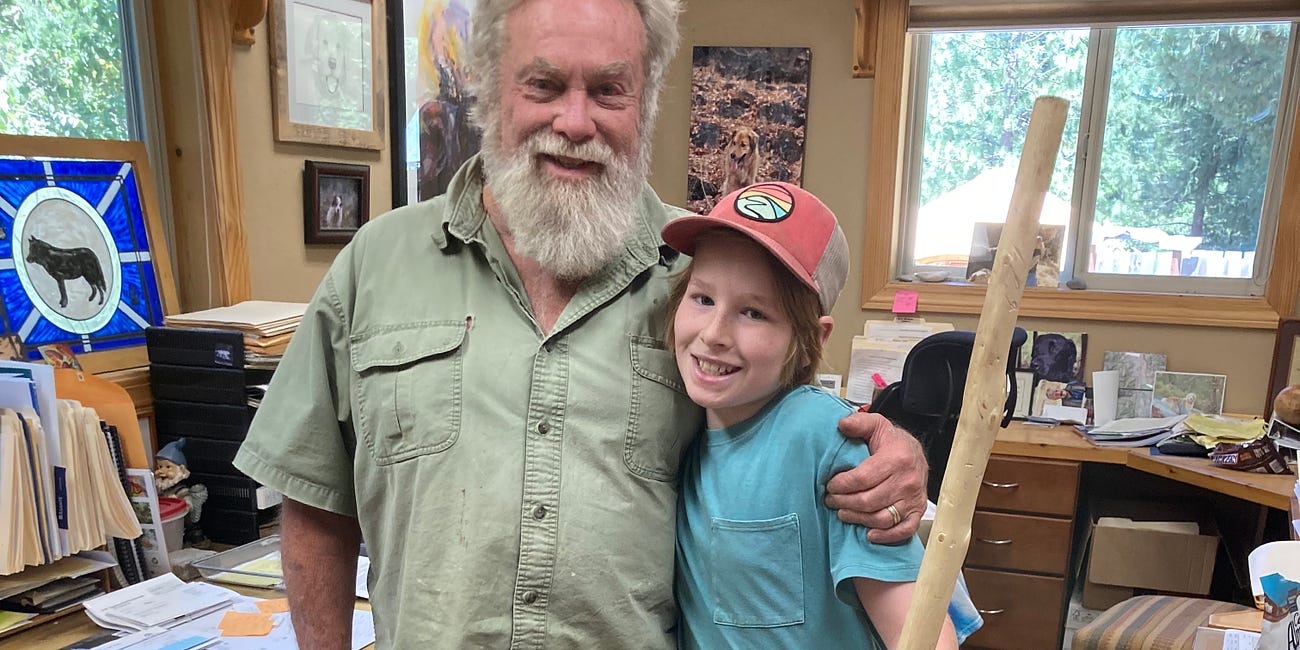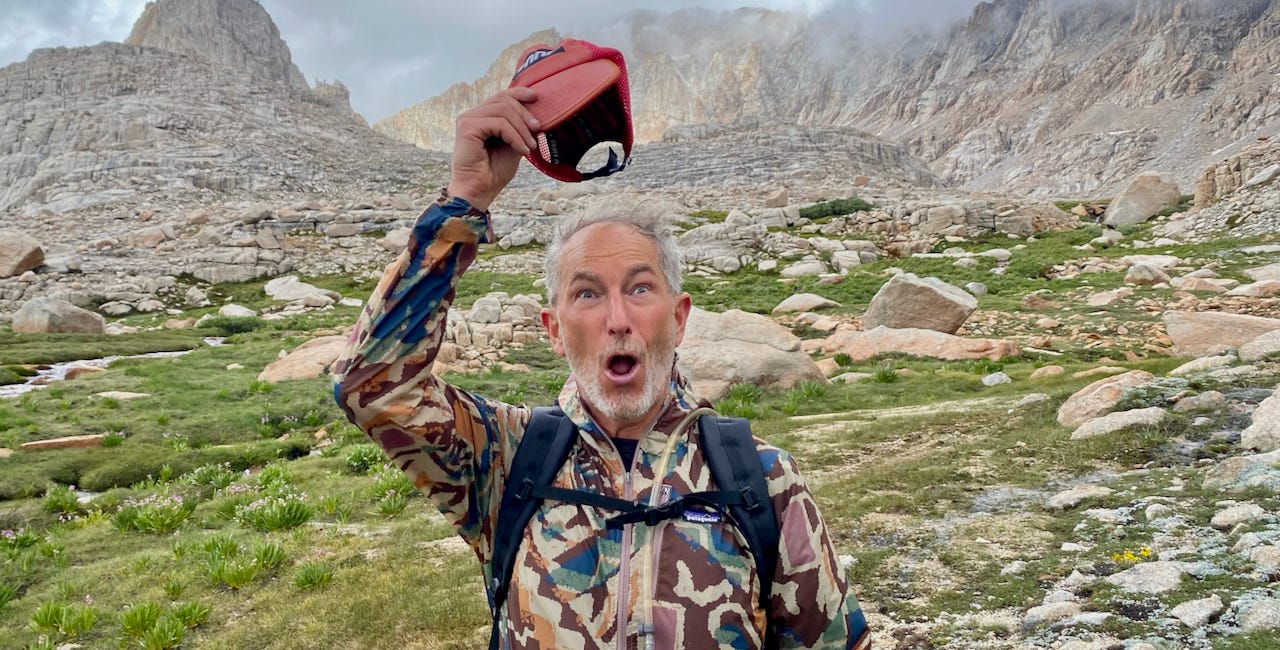The Man Pays
On not being a father, missing the boy who never was—and the bittersweet joy of being child-free.
This piece has been published in Issue 10 of Medicine and Meaning, the online literary journal of the University of Arkansas for Medical Sciences.
My friend Meredith always had a knack for finding places where rent was optional. I was on one of my early trips to New York City, summer of ’97 I think, staying with her and another friend from college in a fourth-floor walkup on Second Ave near 11th—and the owner had just disappeared. Not quite a squat, like the occupied warehouses that I knew of in San Francisco and also in Italy—andiamo al centro sociale!—but nobody was paying, and when it rained it came in right through the roof. I have a photo of the three of us on a sunny spring day there in the East Village—my buddy Mark has got on a pair of Doc Marten’s and a t-shirt from the Beastie Boys first tour and, sorry to say, I’m wearing my goofy west coast Teva sandals on the streets of NYC.
Mark is a bit ahead of us walking up the avenue. Meredith, sweet friend that she was, turns and asks me, “So what happened with Samantha, or Kristen, or was it Gretchen, or—which one did you just break up with?” I watch someone roll through the intersection on a bicycle, hands off the bars, just cruising, and then turn back to her. Meredith had long, wavy, red-blonde hair and green eyes, cutoff jeans, and the old Pentax SLR that she carried with her everywhere those days, loaded with black-and-white. She might have been the first woman in my life who was a sister from the start. “You know how it goes with me,” I said, “but I’ll tell you right now, I’m gonna be married with kids by the time I’m thirty.” She gave me deadpan Detroit—“Really, Bobo?” and I just said, “Yes”—feeling convinced enough myself, in the moment. She smiled back at me and said, “I can see that. I can see that happening,” and I think she was doing her best to conjure it up for me as we carried on, north toward Union Square.
We were both the same age, but to me she had a maturity that I longed for, and I looked up to her like an older sibling. In telling her that I would soon be married with children, I was the one trying to cast a bit of a spell. Becoming a father was something I’d absorbed as part of what it meant to be a man, but I had no idea what it might actually mean. I had no idea what it felt like for my own father to be a father, how or even if he decided to do so, or whether he ever talked about it with anyone—because I’d never talked about it with him, nor with anyone else. My parents were high school sweethearts who paired up to escape Long Island—and I was born not all that long afterward, when they were just twenty-five. I know now because I’ve asked since that they didn’t have much of a conversation about it. Once they’d found a place on the West Coast, they didn’t get in the way of what came naturally, and they were young parents with two kids under five at the age that I was having this conversation with my friend from college.
Kate and I got together twenty-odd years later when I was forty-six, and she was younger enough to still be very much in her years of prime fertility. We did have some conversations about our intentions as we got together, but we left the question of children mostly aside to begin with. Things hadn’t become all that much clearer for me since my sidewalk talk with my old college friend. My feeling along the way had been and remained that if I was with the right person, then I could be interested in having kids. I no longer felt not ready, and sometimes I did in fact feel excited about the possibility of starting a family, but I didn’t feel clear that I wanted kids of my own accord, regardless of whom I was with.
I guess that some people do just know. That wasn’t me, and I felt ashamed for not knowing, for not being clear, and of the slowly growing feeling that it just might be possible that I didn’t really want to have children at all. What little I heard from other men didn’t help much—mostly that “you’ll never feel 100 percent ready,” and that “there’s no right time” but that “everything changes” once you do have kids. That potential loss of control, that an experience would take over my direction and feeling in life—I have to say, that never sounded at all encouraging or interesting to me.
⭐️ NOT THE END! ⭐️
⭐️⭐️⭐️ …please continue reading as published in the Summer/Fall 2024 issue of Medicine and Meaning → https://medicineandmeaning.uams.edu/the-man-pays/ ⭐️⭐️⭐️
Further Reading
I'm Here To Tell The Truth
I’m glad you’re here! And—this is a reader-supported publication. If you appreciate my work, please consider becoming a paying subscriber and, if you’re a writer yourself, I’d love it if you would recommend my Substack to your readers.
No, It Is Not a Struggle to Find Good Male Role Models
I’m tired of people saying that there’s a “struggle to find male role models,” or that we’re somehow still stuck with just two ways of seeing men—either the over-macho post-war (and now highly disgruntled) “breadwinner,” or the under-sexed, unsexy, and largely undesired post-fe…
We Need Wild Fathers
This is part of a series on Fatherhood by a group of men writing on Substack that includes myself,Michael Mohr, Joshua Doležal,Lyle McKeany, Latham Turner, and Dee Rambeau. All of the pieces in the series are linked from this introductory post. This is
The Creation of Patriarchy, Gerda Lerner
I’m Your Huckleberry, Val Kilmer
Selfish, shallow, and self-absorbed: sixteen writers on the decision not to have kids,
The chosen lives of childfree men, Patricia W. Lunneborg
Two is enough: a couple's guide to living childless by choice, Laura S. Scott
Sex at Dawn,
The Myth of Male Power, Warren Farrell
Men's Fertility and Fatherhood: 2014
Fertility of Women in the United States: 2012
When men choose to be childless: An interpretative phenomenological analysis
Childlessness Among Men in Australia
Brief Interviews With Childfree Men
I’ve got a question for you
What’s your own relationship with parenthood, and how has it changed over time? Please comment below…








Beautiful essay, Bowen. As a 39 year old man without children, I contemplate this subject a lot. You've given me a lot to think about. Please continue your excellent writing.
I’ve had such a different experience around masculinity and Patriarchy. I’m sure it has to do with my Dad being 30 years older than Mom, the violence I witnessed by my mother toward him. The levels of complexity are staggering. I only more recently discovered that Dad wasn’t my biological father. I’m over 60 now and never had any children. My sister and two brothers never had any kids either. I’m grateful not to have had any kids. Ironically, as a psychotherapist I focus on helping children. I married late and grateful to have a loving partner in life.